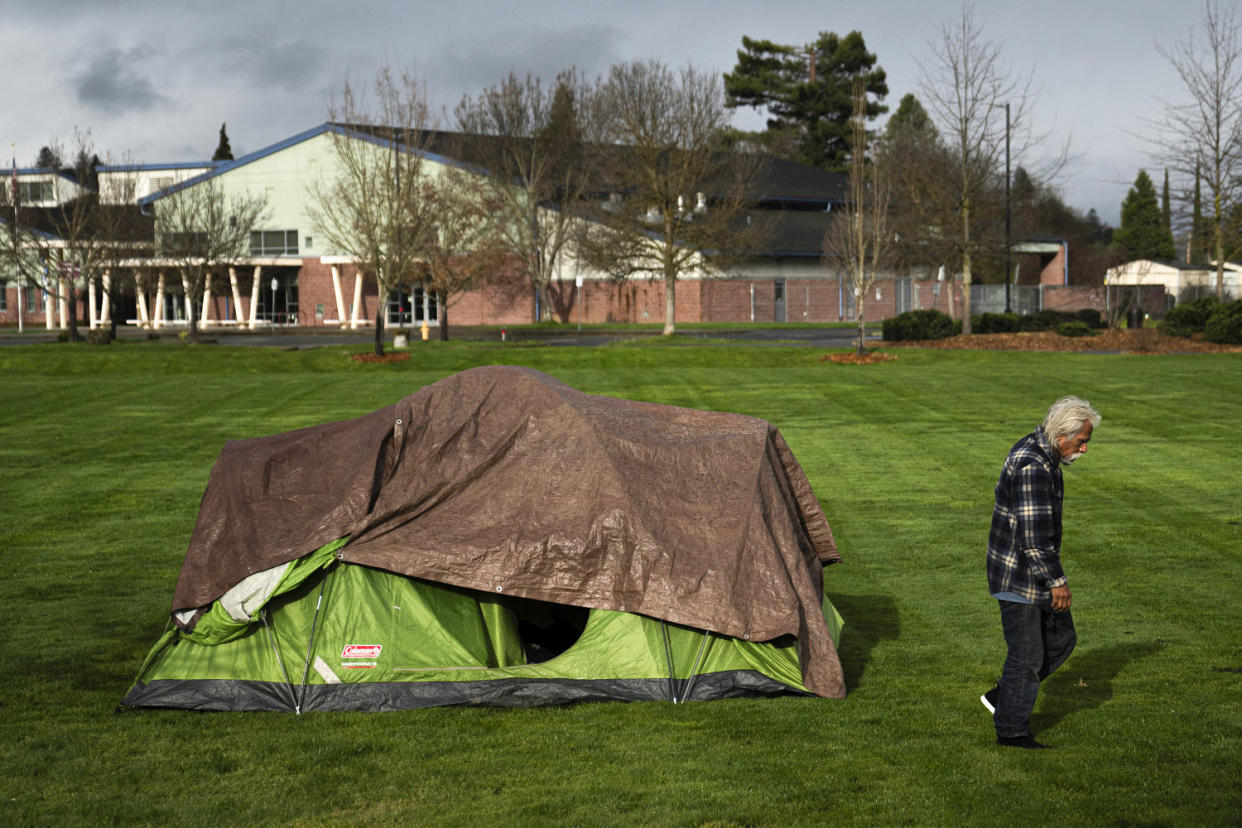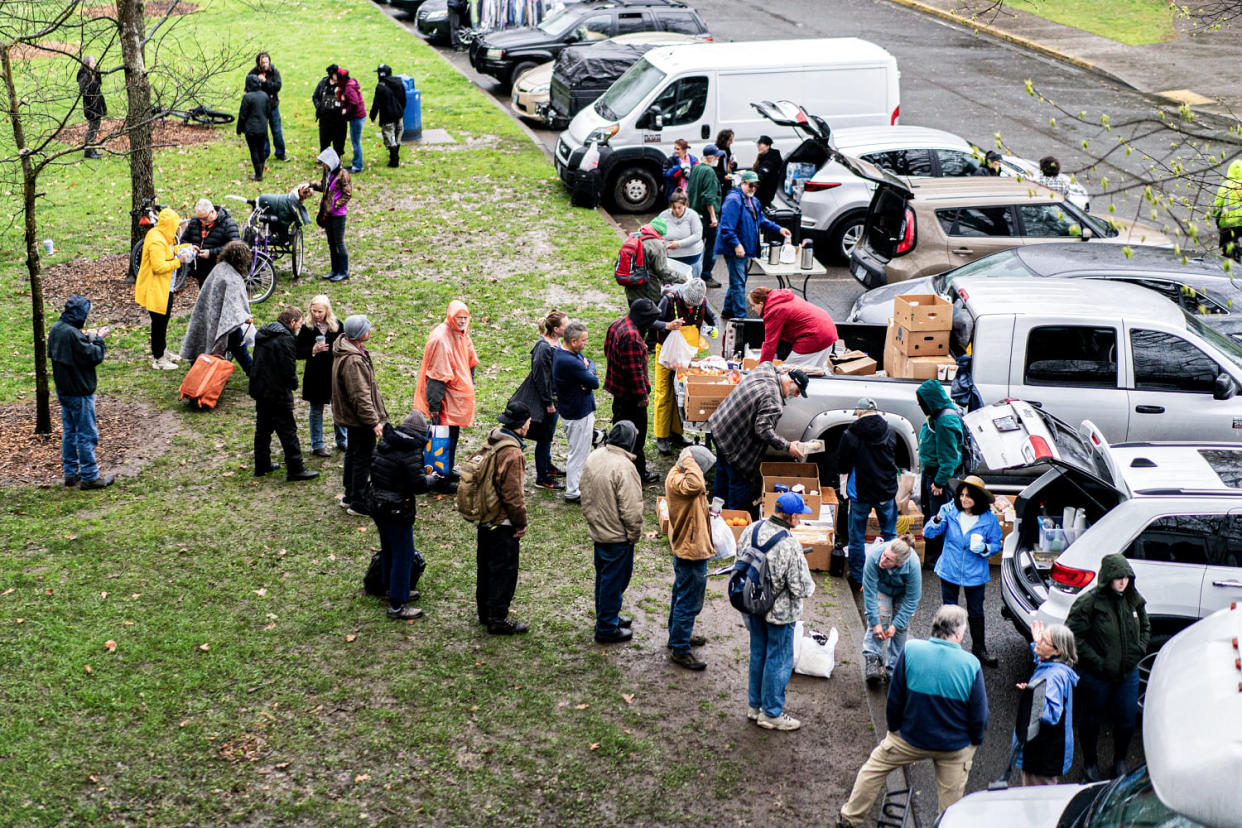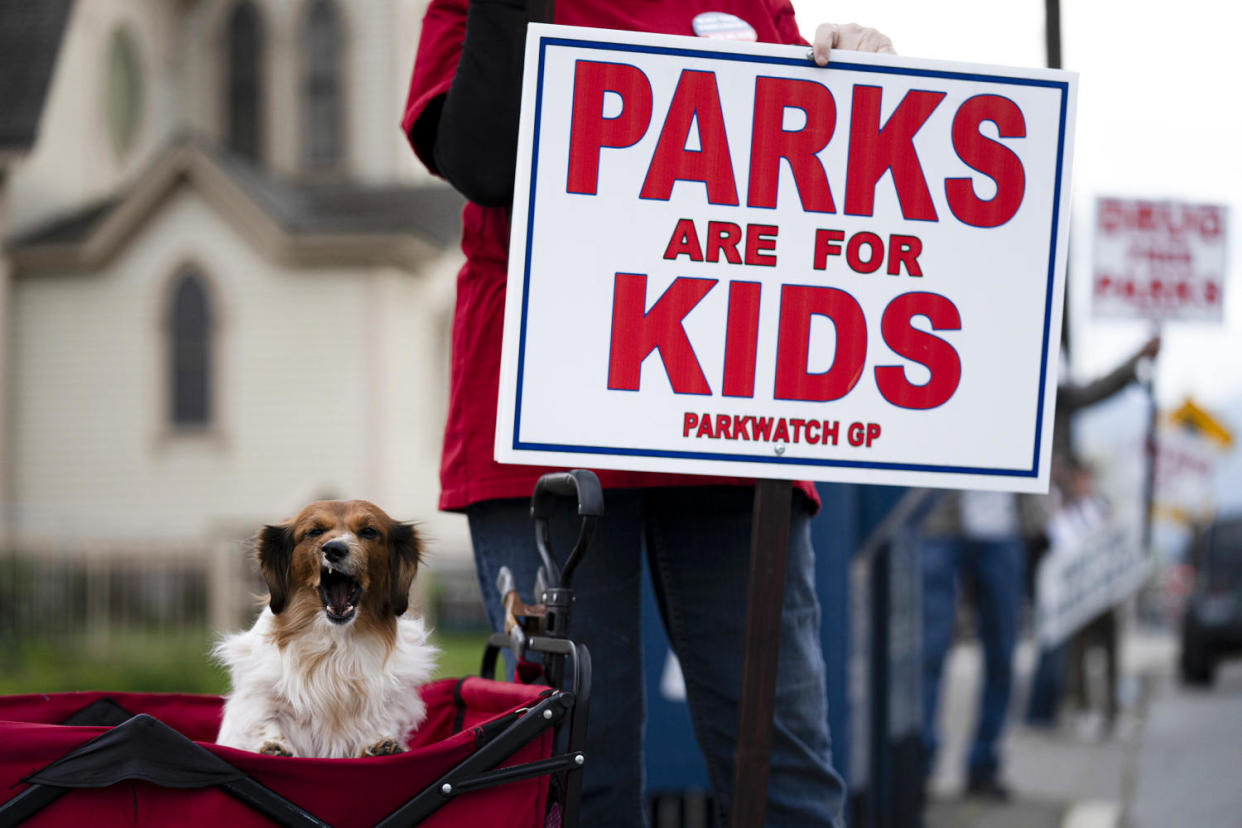Supreme Court allows Oregon city policy that punishes homeless people for sleeping on public property
WASHINGTON — The Supreme Court on Friday rejected a constitutional challenge to ordinances enacted by a small city in Oregon that punish homeless people for sleeping on public property when they have nowhere else to go.
The justices on a 6-3 vote on ideological lines with conservatives in the majority ruled in favor of the city of Grants Pass, saying the measures do not run afoul of the Constitution's Eighth Amendment, which bars cruel and unusual punishment.

"Homelessness is complex," Justice Neil Gorsuch wrote in the ruling. "Its causes are many. So may be the public policy responses required to address it. At bottom, the question this case presents is whether the Eighth Amendment grants federal judges primary responsibility for assessing those causes and devising those responses. It does not."
Gorsuch added that homeless people may have other defenses against punitive municipal ordinances that could be raised in other cases. Grants Pass may also be restricted by a new state law in Oregon that puts restraints on the power of cities to punish people for sleeping on public property.
The ruling was met with a sharp response from liberal Justice Sonia Sotomayor who for the second day in a row made her strong feelings known by reading a summary of her dissent in the courtroom.
“Sleep is a biological necessity, not a crime,” she wrote.
The Grants Pass policy was "unconscionable and unconstitutional," she added, saying she hoped the court in future "will play its role in safeguarding constitutional liberties for the most vulnerable among us."
The ruling overturns a 2022 decision by the 9th U.S. Circuit Court of Appeals in favor of a group of homeless people.
That means an injunction limiting the city’s ability to enforce the ordinances against people who are sleeping outside, protected only by blankets and with no other shelter options available, will be thrown out. The city could already enforce other aspects of what it describes as its anti-camping policy, including restrictions on more permanent encampments.
The ordinances bar sleeping or camping on publicly owned property, but the focus is on people who have no alternative because of a lack of homeless shelters in the city, which is about 250 miles south of Portland.
"We are disappointed that a majority of the court has decided that our Constitution allows a city to punish its homeless residents simply for sleeping outside with a blanket to survive the cold when there is nowhere else for them to go," said Ed Johnson, a lawyer with the Oregon Law Center who represents the plaintiffs.

Punishment, which is the key issue in the case, can include fines of up to several hundred dollars and exclusion orders barring people from public property.
Advocates for the homeless have said the ordinances punish people for existing when they have no other place to go and that the measures do nothing to address the underlying issue of housing shortages.
Cities already have the power to regulate homeless encampments, they added, something that is not at issue before the Supreme Court.
Furthermore, the ordinances would serve only to push the burdens of serving the homeless population onto neighboring jurisdictions, their lawyers argued.

Grants Pass officials posted a statement on the city's website saying they are "thankful that the court's ruling will help guide our next steps regarding unhoused members of our community."
The statement said the city is "committed to assisting residents struggling to find stable housing."
The appeals court ruling at issue applied to all nine states within the its jurisdiction, including California. Several of those states have large populations of homeless people.
Among those asking the Supreme Court to overturn the appeals court were local officials in Los Angeles, San Francisco, Phoenix and other cities.
The Biden administration filed a brief in support of neither side saying laws that bar sleeping on public property are unlawful “if they are applied in a manner that prevents an individual without available shelter from residing in the jurisdiction.”

The appeals court ruled 2-1 that Grants Pass cannot “enforce its anti-camping ordinances against homeless persons for the mere act of sleeping outside with rudimentary protection from the elements, or for sleeping in their car at night, when there is no other place in the city for them to go.”
The decision applied only in situations where there is "no shelter space available,” the court added.
The ruling mostly upheld the injunction issued by a federal judge that limited the city's ability to enforce the ordinances against certain homeless people sleeping in parks at night.

The case arose after a group of homeless people challenged the application of the ordinances. They say there is no shelter space, so they have little option but to sleep outside.
City officials argued in court that the ordinances pass legal muster and are aimed at curbing the proliferation of homeless encampments.
Officials argue that their policies are aimed at encouraging homeless people to seek housing, although the city itself does not have its own shelter. It directs people to one run by a religious organization that has limited space and imposes conditions that some homeless people object to.
